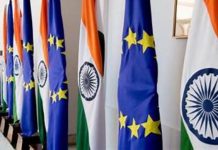EDITORIAL
In what appears to be an intensifying campaign against Pakistan Tehreek-e-Insaf (PTI), the party finds itself increasingly cornered both politically and legally. In recent weeks, a disturbing pattern has emerged: senior PTI leaders are being handed severe sentences by lower courts, followed swiftly by their disqualification from parliamentary assemblies by the Election Commission of Pakistan (ECP). These developments have not only raised questions about the fairness of the judicial process but have also sparked concerns about the broader implications for democratic norms in the country.
The most recent blow came with the conviction of senior PTI leaders—Shibli Faraz, Omar Ayub Khan, and Zartaj Gul—who were sentenced to ten years in prison in connection with the events of May 9, 2023. The charges relate to what the state has termed as orchestrated acts of violence and vandalism following the arrest of party founder Imran Khan. While the state’s position is that the law must take its course, PTI and a growing number of observers argue that the judicial proceedings lack both justification and moral standing.
The sentencing of these high-profile leaders is not an isolated incident. Over the past year, a string of PTI lawmakers and officeholders have been handed prison sentences by lower courts, often in cases related to political demonstrations or allegedly inflammatory speeches. What is particularly alarming is the speed with which the ECP has acted to disqualify these individuals from holding public office—sometimes within hours of a court’s decision. This has given rise to a perception that a coordinated effort is underway to systematically dismantle PTI’s political presence.
Legal experts have questioned the procedural integrity of many of these cases, pointing to what they describe as a lack of due process and the apparent targeting of a single political party. “Justice must not only be done—it must also be seen to be done,” says one senior lawyer familiar with the recent court proceedings. “What we are seeing does not inspire public confidence in the impartiality of the judiciary.”
The exclusion of PTI from the political arena through legal and administrative tools poses a serious threat to the democratic fabric of Pakistan. Regardless of political affiliations, the right of a party to participate in the political process is a cornerstone of democracy. By eliminating PTI’s key leadership and stifling its organizational structure, the state risks undermining not just a party but the very principle of representative politics.
For many, this crackdown signals a return to the kind of political engineering that has historically plagued Pakistan. Civil society activists, independent journalists, and international observers have voiced concern that the narrowing of political space will have long-term consequences for governance, public trust, and national cohesion.
Amidst this mounting pressure, PTI has announced a protest on August 5 to register its opposition to the ongoing legal campaign against its leadership. The protest is seen by many as a litmus test for the party’s ability to mobilize its support base under adverse conditions. Given the extensive restrictions on public gatherings, media coverage, and the arrest of activists, the demonstration is unlikely to be a massive show of strength. However, its symbolic value cannot be overstated.
This protest could mark the beginning of a larger political movement—one that transcends PTI and speaks to broader concerns about repression and the state of democracy in Pakistan. “This isn’t just about PTI anymore,” said a party spokesperson. “It’s about the future of political freedom in this country.”
Despite the challenges, PTI’s support among sections of the public remains significant. The party’s digital presence continues to be strong, and its narrative of victimhood and resistance resonates with many disillusioned voters, especially the youth. Whether this can translate into effective street power under current conditions remains to be seen.
What lies ahead is uncertain. If the current trajectory continues, Pakistan may find itself in a situation where the largest and arguably most popular political party is excluded from the electoral process—not through the ballot box, but through courts and administrative decisions. This would set a dangerous precedent, one that could haunt the country’s political landscape for years to come.
There is still time for course correction. Fair trials, transparent judicial proceedings, and a level playing field for all political parties are essential to restoring faith in the democratic process. Pakistan has already paid a high price for political instability; further polarization and exclusion will only deepen its crises.
While the state may succeed in sidelining PTI leaders in the short term, it is unlikely to extinguish the sentiments they represent. Political ideas do not vanish with imprisonments—they evolve, reorganize, and re-emerge, often with greater force. The real test for Pakistan’s democracy is not whether it can suppress dissent, but whether it can accommodate it through democratic means. As August 5 approaches, all eyes will be on PTI’s next move—and on how the state responds.

















